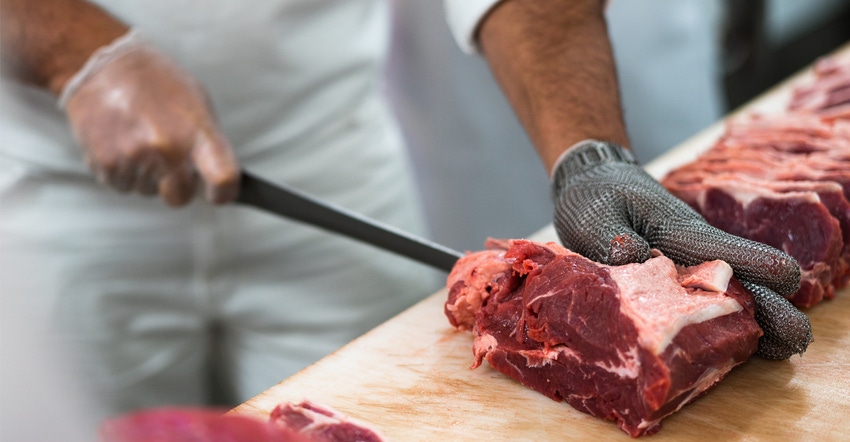
In November, USDA announced the recipients of the Meat and Poultry Inspection Readiness Grant (MPIRG) program. Eight Kansas plants received grants, which will be used to improve meat and poultry processing facilities’ capacity and efficiency.
The MPIRG program is part of the Requiring Assistance to Meat Processors for Upgrading Plants Act (RAMP-UP), written by Sens. Jerry Moran, R-Kan., and Amy Klobuchar, D-Minn. The RAMP-UP Act will provide $55.2 million in grants for small and midsized meatpacking plants so that they can become federally inspected, and thus be able to sell their products across state lines.
“Small meat packers in Kansas play an important role in providing new markets for livestock producers and meeting a growing, nationwide demand for quality meat,” Moran said in a release.
Kansas plants that received grants include:
1. Burkhart Meat Processing LLC, Kinsley. A $200,000 grant will be put toward the processor’s $715,000 slaughter and processing facility expansion project. Burkhart plans to more than double its current capacity and obtain a Federal Grant of Inspection.
2. Alta Vista Meat Co., Alta Vista. A $200,000 grant will be used to update electrical systems and water lines, modernizing the 1960s-era construction. It will also be used to modify the chute and holding pen area, allowing a second team to work, doubling the facility’s output.
3. Price Ventures LLC, LaCygne. A $200,000 grant will create a “plant-in-a-box” concept to meet demand from small-batch poultry producers in the Kansas City area who otherwise struggle to access inspected processing facilities.
4. Freedom Meats LLC, Caney. A $200,000 grant will be used to expand the current processing facility to accommodate increased demand for retail meat. Expansion plans include hiring an additional seven to 10 employees, to process 25 to 30 livestock per week.
5. Circle P Processing, Waterville. A $200,000 grant will modernize equipment and increase capacity and obtain a Federal Grant of Inspection, so that clients can sell meat products throughout the U.S.
6. Schenker Family Farms Inc., McCune. A $194,970.69 grant will be used to improve the facility and create a hazard analysis critical control point (HACCP) food safety plan, so it can be USDA-inspected. This will allow the company to expand from its consumer-direct specialty food channels to larger distribution.
7. BD Meats Inc., Wichita. A $200,000 grant will be used to achieve federal inspection, and repair and expand freezer space for its Amish customers. The company will also expand smokehouse capacity to produce more locally sourced product from area farmers and ranchers.
8. Dieck’s Inc., Clay Center. A $200,000 grant will be used to increase locally sourced meat production and obtain a Federal Grant of Inspection, so that customers can sell their meats outside of Kansas.
To read more about the program, visit ams.usda.gov/services/grants/mpirg.
About the Author(s)
You May Also Like






